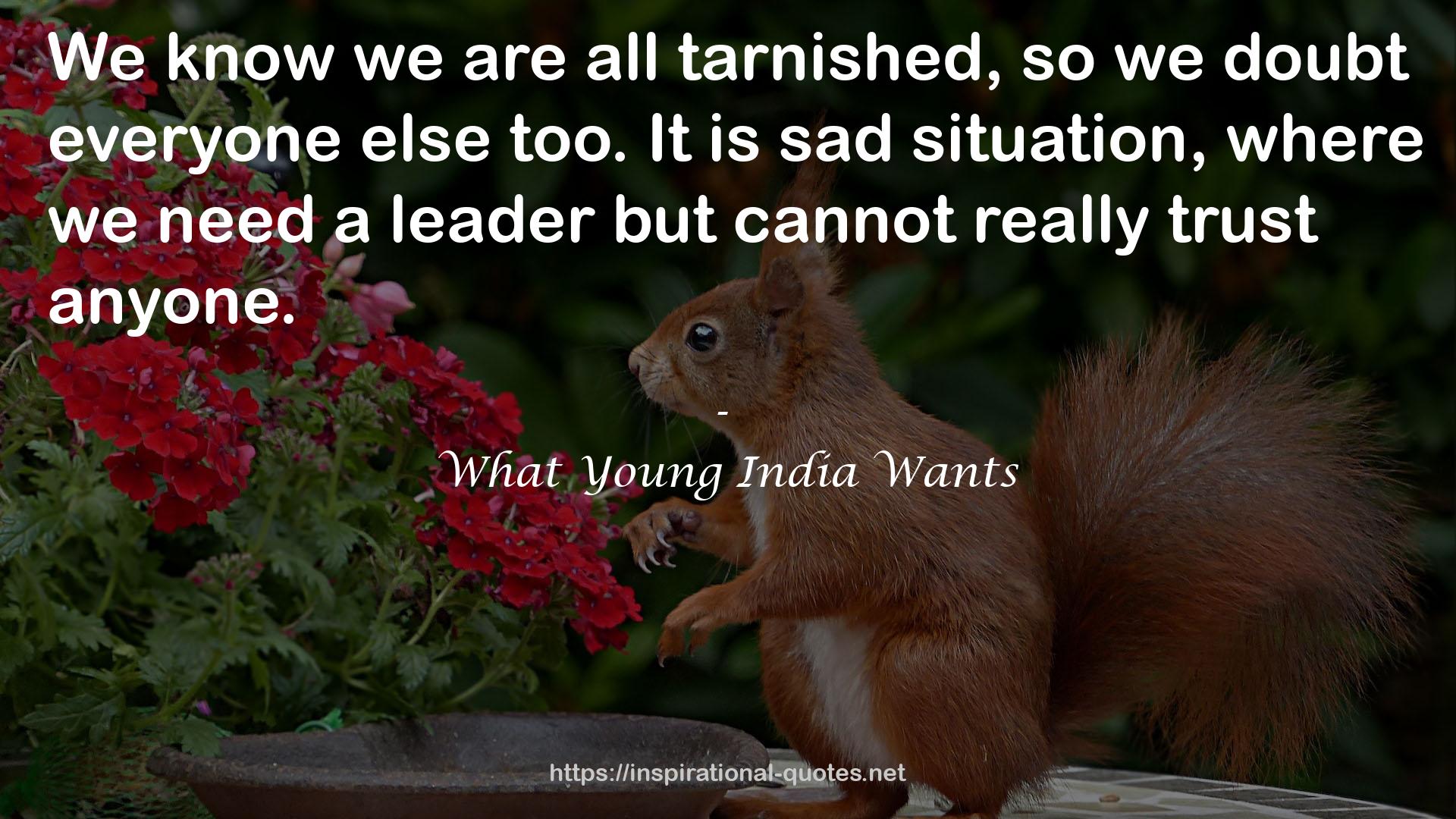14
" The corporate czars we celebrate—with some exceptions—are second or third-generation tycoons who run huge empires comprising dozens of unrelated businesses. Traditional management theory will wonder how a company can be in food, telecom, power, construction and financial sectors all at the same time. However, in India, such conglomerates thrive. The promoters of these companies have the required skill—navigating the Indian government maze. Whether it is obtaining permission to set up a power plant, or to use agricultural land for commercial purposes, or to obtain licences to open a bank or sell liquor—our top business promoters can get all this done, something ordinary Indians would never be able to. This is why they are able to make billions. We then load them with awards, rank them on lists and treat them as role models for the young.
In reality, they are hardly icons. They have milked an unfair system for their personal benefit, taking opportunities that would have belonged to the young on a level playing field.
Indian companies make money from rent-seeking behaviour, creating artificial barriers of access to regulators, thereby depriving our start-ups of wealth-generating opportunities. None of the recent technologies that have changed the world and created wealth—telecom, computers, aviation—have come out of India. Yet, our promoters have figured out a way to make money from them by bulldozing their way into their share of the pie, rationing out the technology to Indians and setting themselves up as modern-day heroes. In reality, they are no heroes. They are the opposite of cool and, despite their billions, they are what young people call 'losers'.
For if they are not losers, why have they never raised their voices against governmental corruption? Our corporate honchos don't think twice before creating a cartel to fleece customers. Yet they have never even thought about creating a cartel to take a stand against corrupt politicians.
The Great Indian Social Network, page 16 and 17 "
― , What Young India Wants
17
" The fact is that despite liberalization of the economy, benefits are not reaching everyone. Yes, they reach the top 10 per cent. However, the other 90 per cent are still untouched. In fact, these people get the worst of badly implemented capitalism—inflation kills their savings and purchasing power, their land gets stolen by corporate houses and their politician cares only about the rich guys. They are not in any advertiser's target group so the media dismisses them and they don't get a voice. Every now and then, a politician tosses cheap rice or wheat at them, keeps them alive on drip feed, and hopes to swing some votes. Our rural poor never see the benefits of liberalization. Add to this, poor education, archaic caste-based social discrimination, poorly implemented welfare policies and a general lack of job opportunities, and it leads to a kind of passive frustration that urban citizens can never understand. The leaders of these movements apparently do, and that is why a youth, with his whole life ahead of him, takes up arms against the state and becomes a rebel.
The Wrong Diagnosis, page 25 and 26 "
― , What Young India Wants
20
" In several villages in Punjab, kids have developed neurological problems and deformities as there is uranium in the water due to pollution by nearby plants. And Bhopal, the mother of all industrial disasters, serves as an example of how little our government values Indian citizen's lives.
Let there be no doubt, the government is as much a culprit in Bhopal as Union Carbide. Every plant approval, safety norm and inspection also involves government authorities. Palms are greased, relationships are made and the good Indian businessmen learn to manage government officials. After all, the skill of doing business in India lie in managing the system, not innovation or better products. The nexus between the rich and government servants is strong and you will often find one in the other's living room in the evenings.
Why do so many politicians socialize with industrialists? They bond over dinners and plan their kids' education and their wives' shopping trips. At parties, they shake hands over approvals. It all seems perfectly harmless. What's wrong with making friends? However, trouble happens when disaster strikes.The first person the politician/bureaucrat helps is the industrialist, not the suffering people. I'm sure Anderson knew the right people. And he used his contacts to make his escape. The little kid who got gassed didn't have contacts. Neither did he have a government representative who would bang his fists on the table to get him justice. Because, quite simply, people in India are cheaper than fish.
All hope is not lost, however. We can still learn our lessons and do a couple of things right. One, our laws need to be amended for corporate disasters. Corporates make a mistake, they have to pay—heavily. Two, politician-industrialist socializing should not be encouraged. While a politician making social visits to industrialists can't be banned, it should definitely be disclosed. Only then will, perhaps, an ordinary citizen's life be valued higher than a company's profit.
What's a Citizen's Life Worth?, page 42 and 43 "
― , What Young India Wants

